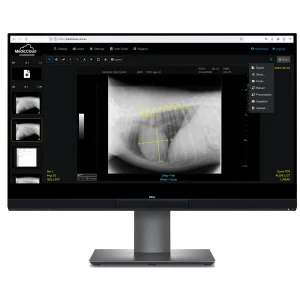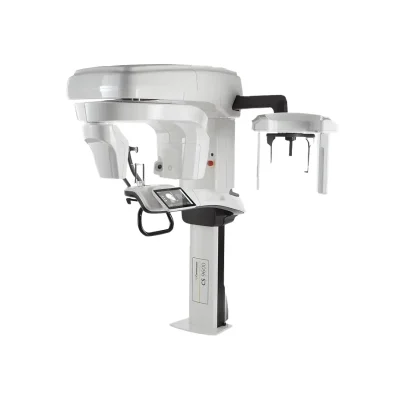Home » Healthcare Data Files and Popular File Sharing Platforms
How can I store digital files at my clinic?
When it comes to healthcare data and cloud storage, convenience often tempts practitioners into risky decisions. Popular file sharing applications which are free, easy to use and/or host their server infrastructure outside of Australia seem like good options to use, but are they appropriate for healthcare environments in Australia?
Let’s break this down clearly and practically.

Sam, Medic Cloud Managing Director
Can I store patient data on popular file sharing platforms?
In most cases, the answer is no—at least not without careful configuration and robust documentation demonstrating compliance with the Australian Privacy Principles (APPs). These platforms are not purpose-built for healthcare and do not inherently meet the stringent requirements for protecting sensitive health information.
Why is this a problem for clinics?
Several key risks arise when using general cloud platforms in healthcare:
- Data sovereignty: Popular file sharing platforms often store and replicate data across global data centres, making it difficult to know exactly where patient information resides.
- Shared access risks: Files can be easily and sometimes inadvertently shared, creating challenges in tracking who accessed what.
- Lack of audit trails: Standard accounts typically do not provide the audit-level logging required for regulatory compliance.
- Encryption gaps: Although both services encrypt data in transit and at rest, this alone may not satisfy healthcare compliance standards without additional security controls.
What does the Privacy Act say?
Under the Privacy Act 1988 (Cth), healthcare providers must take reasonable steps to:
- Ensure patient data is securely stored with access limited to authorised users
- Maintain accountability for access and sharing of records
- Inform patients about how and where their data is stored
Using popular file sharing platforms without strict control over data storage locations can easily breach these obligations.
Are there safe ways to use popular file sharing platforms?
Yes—but only under strict conditions:
- You operate on a business or enterprise-level plan with full administrative controls
- Two-factor authentication is enabled across all accounts
- Internal policies are clearly documented, limiting sharing and access
- Avoid using these platforms for storing medical records, reports, or diagnostic images
In short, general cloud storage might be suitable for non-clinical internal operations, but it should never be used for patient files or clinical records.
What’s the alternative?
Healthcare providers should opt for healthcare-specific storage solutions or secure file exchange platforms that:
- Host data on Australian servers
- Equip the service with full audit logs
- Enforce strict access permissions and encryption standards
The ongoing risk – even with the best intentions
Despite having clear policies and internal safeguards, mistakes can still happen. Patient data may inadvertently or deliberately end up on non-compliant platforms, exposing clinics to significant regulatory risks.
Reality of healthcare data breaches in Australia
Australia’s healthcare sector remains one of most targeted industries by cybercriminals. In the first half of 2024 alone, the Office of the Australian Information Commissioner (OAIC) received 102 data breach notifications from healthcare organisations—making it the most affected sector during that reporting period.
Key findings included:
- 67% of incidents resulted from malicious or criminal attacks
- 30% were attributed to human error (OAIC Report – July to December 2023)
What are the financial consequences?
Data breaches don’t just constitute a technical failure—it carries serious financial consequences. A recent breach at an Australian private healthcare company is forecast to cost over $80 million by 2024 in legal fees, technical remediation, and operational fallout (ITNews).
In response to growing cyber threats, the Australian Government strengthened penalties through the Privacy Legislation Amendment (Enforcement and Other Measures) Bill 2022, introducing:
- Fines up to $50 million
- Penalties equivalent to three times the value of any benefit gained
- Or 30% of the adjusted turnover during the breach period (Protegrity)
Our Microsoft 365 software packages are compliant
A warning about IT providers who get it wrong
Unfortunately, we have seen general IT providers—sometimes even those claiming to specialise in healthcare—recommend or onboard clinics onto popular file sharing platforms without fully understanding Australia’s regulatory requirements.
The issue stems partly from the lack of formal regulation in the IT sector. Unlike healthcare, where strict credentialing is mandatory, IT remains largely unregulated—allowing anyone to claim expertise in medical systems.
So what’s the result? Clinics unknowingly face compliance risks, wrongly assuming they are protected.
A prime example is a recent breach of an Australian private health insurance company, which exposed sensitive health information for millions of Australians. The breach highlighted the catastrophic consequences of poor vendor management, system misconfiguration, and inadequate security oversight—costing the organisation an estimated $80 million by 2024 (ITNews).
This is not about blaming individuals. Rather, it is about urging clinics to vet IT providers carefully and find a vendor that is fit for purpose.
Always ask potential providers:
“Have you worked with healthcare compliance frameworks before?”
“Where will my data physically reside? Where are the physical servers housed?”
“What is your data exit strategy if we choose to leave the platform?”
The importance of choosing the right cloud storage
Even with strong internal processes, using non-compliant platforms for clinical information introduces significant risks.
At Medic Cloud, we provide private cloud services hosted within Australia, ensuring full compliance with local privacy laws and offering complete control over your data.
Our healthcare-specific solutions offer clinics peace of mind, ensuring your storage systems won’t become your weakest link.
Final thoughts
This article provides general information intended to educate and raise awareness; it does not constitute legal advice. Clinics should always seek formal legal counsel or consult a qualified compliance expert before making data storage decisions.
We are not here to discredit popular file sharing platforms—they are excellent when used appropriately. Our aim is to help healthcare providers understand the risks and correct application of these systems within regulated healthcare settings.
Don’t compromise patient trust or risk compliance penalties just to save a few clicks or dollars.
Read more blogs

Subscribe to Medic Hub
Get the latest insights direct to your inbox.





